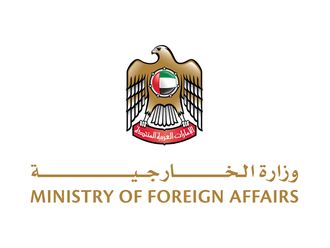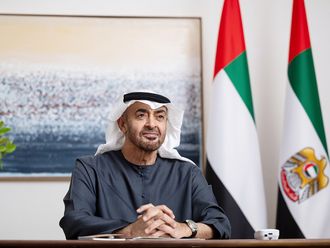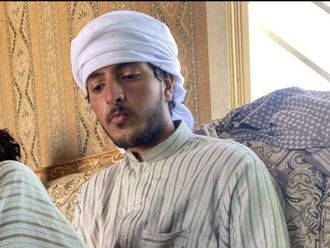Abu Dhabi: Autism, obesity, diabetes, asthma and heart diseases which have become emerging epidemics throughout the world are some of the biggest risks facing children, a leading health expert warned as he gave a lecture at Majlis Mohammad Bin Zayed on Monday.
During his lecture titled: ‘Changing the future of health through paediatrics’, Dr Kurt Newman, president and CEO of Children’s National Medical Centre in Washington, DC, president of the Children’s National Centre at the Shaikh Zayed Campus for Advanced Children’s Medicine and a partner to carry out the vision of Shaikh Zayed Institute for Paediatric Surgical Innovation, said: “Accidental injuries kill 830,000 children every year around the world, more than 3 million children die in the first month of birth, and two out of three child deaths are preventable.”
Dr Newman called for using a paediatric approach, using the best solutions made available through new technologies that help provide the so-called “anticipatory medicine”.
“Collaborative application of anticipatory medicine will proactively care for children today in order to improve adult health in the future,” Dr Newman highlighted in the lecture attended by General Shaikh Mohammad Bin Zayed Al Nahyan, Crown Prince of Abu Dhabi and Deputy Supreme Commander of the UAE Armed Forces.
Harnessing the power of prevention, technology and genetics will transform child health, he said, adding that anticipatory medicine implies efficient prevention, detection and intervention to save the patients’ lives.
“We should find ways to address or even eliminate the health issues before they develop, using pulse-oximetry (pulse-ox) screenings to screen for congenital heart defects in newborns to save their lives. We should also use life-saving genetic medicine for early intervention in prevention of adult disorders: obesity, type II diabetes, asthma and so on,” he said.
“Epigenetics will lead to the development of new medications or therapies to eliminate certain diseases and foetal neuromedicine will allow doctors to fix health issues before birth,” Dr Newman recommended.
“Our goal with our partnership is to improve paediatric medicine for children in Abu Dhabi, Washington and around the world,” Dr Newman said. He recommended establishing a specialised paediatric hospital in Abu Dhabi that will function as a regional centre for children with severe health problems. “The UAE has the financial ability to invest in such a hospital and it can benefit from its human capital in this regard. This will be a good model for others and will help save many lives as lives of many children can be saved if they are diagnosed well before being born,” he said.
Driving home his point, he alluded to the success of a UAE project. “Telemedicine programme in Fujairah allowed for live consultations between medical specialists in Washington and the UAE,” he said.
“Such specialised hospitals will have state-of the art medical technologies including robots to operate surgeries on children. For example, some children die because hospitals do not have appliances that measure oxygen in the baby’s blood,” he said.
“We should also benefit from modern technologies to break geographic barriers through partnership agreements between countries whereby doctors from two countries or more can diagnose a child’s case and give their opinion on his treatment,” Dr Newman said.
He highlighted that accidental deaths amongst children in the United States had declined 53 per cent since 1987, attributing the decrease to early detection and screening of diseases and intervention at the right time using devices such as sonograms and the algometre — used to measure pain — ringing in a new model of health care.
“The use of new technologies will radically change and reduce death rates amongst children in the next decade,” Dr Newman stressed.












